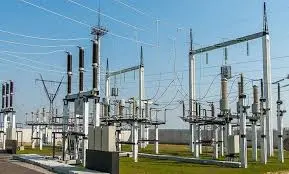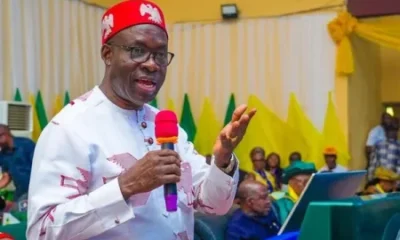Breaking News
BREAKING NEWS: World Bank Seeks Affordable Supply For Economic Growth

BREAKING NEWS: World Bank Seeks Affordable Supply For Economic Growth- As African continent pushes for electricity expansion through several initiatives, the World Bank has advised against mere lighting provision ensuring supply calculated to meet economic growth.
The bank in a blog titled ‘Africa’s big push on electrification: A cautionary tale,’ the global lender said, as with many ambitious initiatives, there’s a risk of focusing too much on numbers and losing sight of what truly matters.
The report advised on the need to seize the opportunity to fix structural issues confronting African utilities, saying: “The low electrification rates in Africa are a symptom of deep-rooted issues in the energy sector.
These include, financially bankrupt utilities, excess political interference in the utility space, corruption, lack of transparency in power purchase agreements, massive technical and non-technical losses, to mention a few.
As a result, electricity provision in the region is characterized by low levels of reliability and high energy cost. “If we fail to seize the current momentum to address underlying structural challenges alongside expanding electricity access, we risk deepening the sector’s existing vulnerabilities.
This could lead to a situation where, in the near future, governments and development partners are forced to seek additional funding just to keep the sector afloat—at a time when financing conditions are increasingly constrained. According to the report, while metrics can show scale and ambition, they mean little if the outcomes don’t lead to real impact — and electrification programmescan be susceptible to this.
It added that counting the number of connections alone missed the point if the electricity supplied is not capable of supporting meaningful economic activities such as powering household and commercial consumption. “The Energy for Growth Hub reminds us that there is no highincome country with low-energy consumption (see chart below).
If the ambition of electrification policies is indeed to support economic development, then it must simultaneously ensure that there is a reliable and affordable supply of electricity capable of powering economic activities. Any effort to increase connectivity without addressing the frequent outages in the region would fail to deliver development.
“This isn’t to downplay the importance of expanding access, but rather to caution against settling for minimal service, such as basic lighting, without enabling the use of productive appliances that can power businesses, schools, hospitals, and livelihoods. “Under Mission 300, there is a conscious effort being made to expand residential connections along with electricity access to businesses and essential services, such as schools, health facilities, and job-creating industries such as healthcare, agriculture, hospitality, and manufacturing.
In parallel, the initiative is investing across the electricity value chain—including in generation, transmission, and sector reforms—to ensure that these new connections are supplied with affordable and reliable electricity,” the bank said. Noting that electricity alone is not a silver bullet, the report said “a pitfall among development practitioners is the tendency to fixate on a single solution—believing that one intervention alone could dramatically transform outcomes.
“Electricity is definitely a transformational infrastructure on which modern economies thrive. “However, electricity on its own cannot supercharge economic development—it becomes a powerful one when paired with complementary infrastructure like roads, and digital connectivity. Indeed, research has shown significant complementarities in the development impact of infrastructure provision.
“What this means in practice is that initiatives in the energy sector must be sequenced with other development programmes in countries to maximize the development impact. Otherwise, we run the risks of future studies questioning the returns on such massive investments.”
Describing Africa as home to the largest share of the world’s unelectrified population—an estimated half a billion people, mostly in rural areas, the report pointed out that in recognition of the significant role of electricity in economic development, the region was poised to erase this unwelcome statistic by achieving universal access by 2030 through several national and multilateral initiatives.
According to the World Bank, “the most promising signs of this shift are the emergence of initiatives like Mission 300, Just Energy Transition Partnerships, Africa Minigrids Program, Africa Electrification Initiative, as well as a plethora of country specific programs, all aimed at accelerating the pace of electrification in the region.
“While these initiatives mark a significant step forward, it is important that these efforts are guided by the core mission of using electricity to stimulate development and tailor the solutions to address structural challenges of the region.
“A landmark publication in the Africa Development Forum Series, Electricity Access in Sub-Saharan Africa: Uptake, Reliability, and Complementary Factors for Economic Impact, highlights this crucial lesson: achieving development impact requires more than just expanding access—it depends on reliable supply, meaningful use, and integration with broader development efforts.”
The report also shared perspectives on core issues that can guide electrification programs lmes in the region. It said: “While some of the principles may already be reflected in the design of some of the programs mentioned above, they can still serve as a useful reminder for stakeholders responsible for implementation and help inform national electrification strategies. “Avoid the temptation of fixating on short-term gains.
-

 Breaking News5 months ago
Breaking News5 months agoBREAKING NEWS: Labour Congress Call For Review Of Minimum Wage, Propose N150,000 Pay For Lagos Workers
-

 Entertainment5 months ago
Entertainment5 months agoBurna Boy Used To Squat In My House – Cubana Chief Priest
-

 Breaking News5 months ago
Breaking News5 months agoALLEGED BLASPHEMY: Angry Youths Kill Female Food Seller In Niger State
-

 Entertainment5 months ago
Entertainment5 months agoBBNaija S10: I Was Prevented From Returning To Show Despite Being Medically Fit – Sabrina
-

 Entertainment5 months ago
Entertainment5 months agoPopular Nigerian Comedian, Josh2Funny And Wife, Bina, Welcome Third Son
-

 Entertainment5 months ago
Entertainment5 months ago[VIDEO] Ibom Air Incident: Comfort Emmanson Opens Up on Traumatic Experience
-

 Breaking News5 months ago
Breaking News5 months agoBREAKING: CAC Extends New Fee Regime To October 1
-

 Entertainment5 months ago
Entertainment5 months agoMedia Personality Toke Makinwa Make Confession On Fearful Pregnancy Journey, Shares Fresh Maternity Shoot
-

 Breaking News5 months ago
Breaking News5 months agoBREAKING: 1 Israeli Soldier Dead, 9 Injured, 4 Missing
-

 Politics5 months ago
Politics5 months agoSoludo Mocks Obi, Declares ADC and LP “Dead” After Anambra By-elections
-

 Breaking News5 months ago
Breaking News5 months agoBukuyum: Air Operations Force Bandits To Release 70 Kidnapped Victims In Zamfara
-

 Breaking News5 months ago
Breaking News5 months agoBREAKING: Hamas Captures Israeli Soldiers in Gaza
